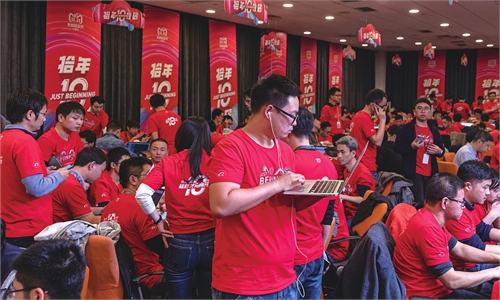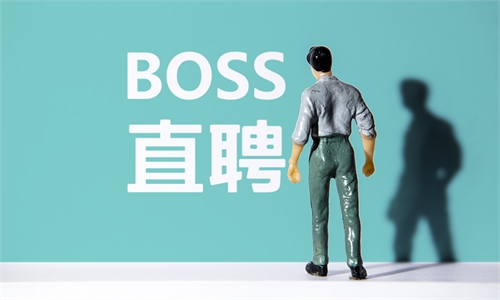More Chinese firms scrap overtime policy after official warning
Trend to help internet sector improve labor management: expert

An employee is working overtime. Photo: VCG
More Chinese companies have said that they will scrap corporate policies that push employees to work overtime, as the country's regulators warned against the excessive work culture that has become increasingly popular at large domestic tech companies and has drawn widespread attention from the public.
The moves specifically target the "996" culture, which means working from 9 am to 9 pm six days a week, and "big/small workweeks" - alternating six-day and five-day workweeks.
On Saturday, smartphone maker Vivo said that it would scrap the big/small workweeks system and let employees work five days each week, according to a statement published by Vivo Culture on Saturday. It noted that Vivo will strive to accomplish its mission of creating a "happy, progressive" environment for its employees.
Vivo was the latest Chinese company to announce such plans to scrap overtime working policies, after discussions erupted on China's twitter-like Sina Weibo claiming that overtime work has increasingly become the norm for Chinese companies, especially in the internet industry.
Earlier, video-sharing platform Kuaishou announced that it would cancel alternating workweeks starting from July 1, and its employees could choose to work extra hours according to their needs. Similarly, ByteDance also cancelled the alternating workweeks.
Tencent declined to comment when contacted by the Global Times on Sunday, while a public relations employee from Alibaba said that Alibaba never ordered its employees to work on Saturdays, unlike some other companies.
"We don't have a 996 work system, and therefore we don't need adjustment," she said.
The adjustments to a five-day work system came as government regulators sent signals opposing the overtime work culture at large companies.
On Friday, the Supreme People's Court and Ministry of Human Resources and Social Security published a statement on labor violations and unreasonable overtime, in a clear warning against the excessive-work culture that increasingly pervades China's large companies.
The statement, which outlined 10 court cases in which employees had been forced to work extra hours, was read by the some media outlets as an indication that overtime policies like 996 are unlawful.
Independent tech analyst Fu Liang told the Global Times on Sunday that although rumors about the 996 culture being prevalent at internet companies were somewhat exaggerated, it is true that the internet sector's work model is more irregular and flexible compared with other industries.
"Many internet companies' staff management needs improvement in terms of standardization, and government supervision could push those companies to adjust their management to strictly abide by labor laws," he said.
An intern at a domestic tech giant that recently scrapped alternating workweeks told the Global Times that the company's staff has conflicting opinions about the corporation's policy change.
"Most engineers don't want this, because they will earn less, at least 100,000 yuan less each year. But for those whose salaries are relatively low, they welcome it," he said.
Fu also said that enforcement of labor laws will be stricter in the future, and the number of labor lawsuits might increase accordingly.




